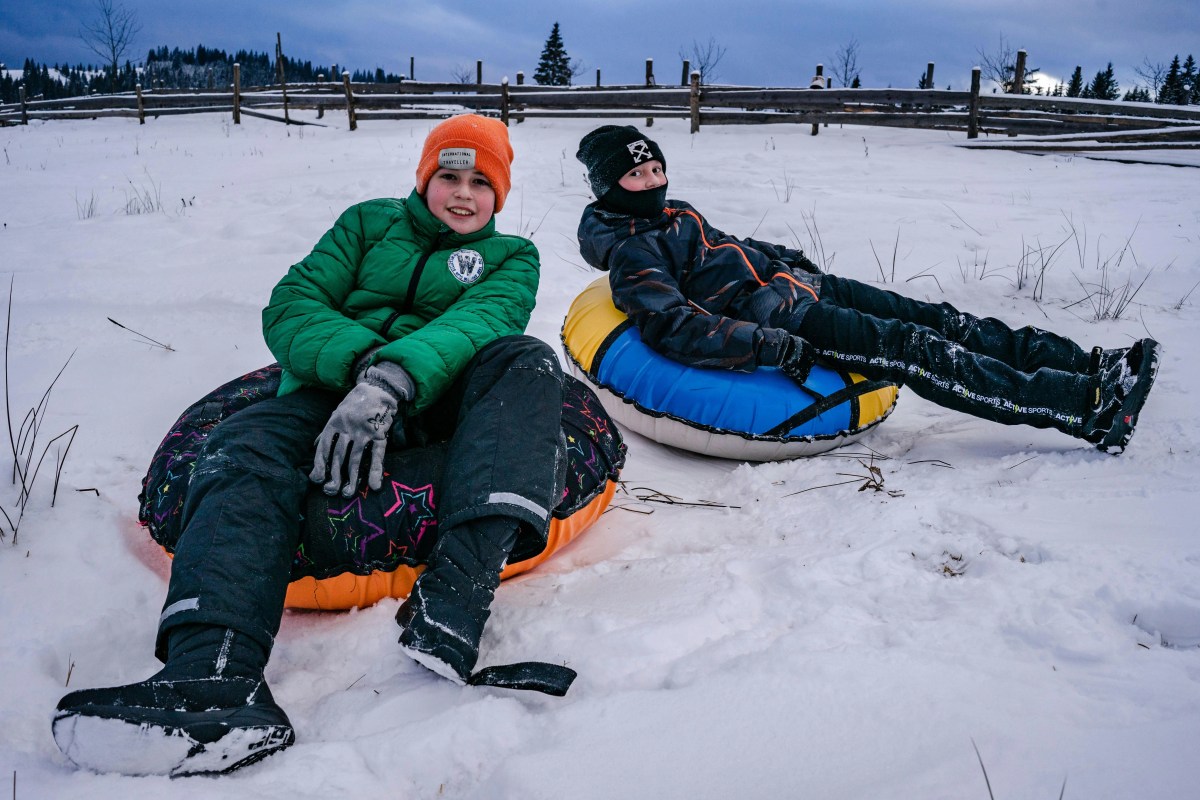Temperatures may be hovering around freezing, but it’s time to start setting your sights on summer fun. It may be hard to believe, but summer camps are already accepting applications. If camp is in your child’s future this summer, advanced planning can make all the difference. To discover the camp that is perfect for your child, and your budget, start researching your options now or risk finding your desired program fully enrolled.
Enroll Now
The American Camping Association’s latest enrollment figures demonstrates just how popular summer camps have become in the past 20 years. Last year, more than 11 million children attended one of the 12,000 camps across the country and the numbers are expected to grow this year. Of the 12,000, some 7,000 are resident camps and 5,000 are day camps.
You name the activity, pastime, the pursuit or theme and there’s a summer camp for it: academics, athletics, computers, art – the sky’s the limit. There are two big trends noted: campers are getting younger and camps are becoming more specialized. As camping experiences diversify you are bound to find one that will entice even the most reluctant camper.
Selecting a Camp
Camp is a place where your child can grow as he embarks on adventures that will transform a humdrum summer into a fabulous and enriching break that he will never forget. If you’re like most parents you want the
ultimate camp experience for your child. Since there are myriad programs to choose from, it may seem mind-boggling, but this guide can help you navigate this exciting world of possibilities. Start here:
• Experts recommend selecting a general program for the first year rather than a specialty camp. That way kids will be exposed to the full breadth of camp activities.
• Before selecting a camp, it is crucial to match your child’s interests and personality as closely as possible to the camp’s programs and atmosphere.
• Research potential camps; don’t just pick a program because of the nice photos in the brochure.
• Choose a program that has a philosophy and value system you support.
• Word of mouth can go a long way. Speak with other parents about the camps with which they have had a positive experience. This can provide a lot of insight in selecting the best summer camp for your child.
• Seek referrals from the American Camping Association or The National Camp Association. The PTA and parent groups can put you in touch with other camp consumers. Finding a camp where your youngster will thrive and you feel like your dollars are well spent is likely to take some time but doable.
• If your concerns are financial ones, according to the American Camping Association about 65 percent of camps offer scholarships and financial assistance. Aid is limited so apply early.
Accredited Camps
Since most camps are not subject to federal or state guidelines it’s savvy to thoroughly investigate the camp being considered for your child. Accreditation is a good indicator that the camp operates within industry standards. Founded in 1910, the American Camping Association (ACA) is a national educational community of camp professionals dedicated to enriching the lives of children through camp experiences. It is the only organization that accredits all types of camps based on 300 standards for health, safety and program quality. For more information, call 800-326-2236, or go to the ACA website at www.aca-camps.org.
The site features an interactive camp database of more than 2,000 ACA accredited camps. Ask if the camp is accredited, if not, ask why and what led to the decision not to seek accreditation and see if you’re comfortable with the response. There are some excellent camps, which have chosen not to go the accreditation route. The ACA stamp of approval, however, provides some reassurances. For example, The Boy Scouts of America have their own set of standards just as tough as the ACA’s.
Evaluating a Camp
According to the ACA, in addition to looking at the quality and variety of programs and activities offered by the camp, they suggest parents consider the following while evaluating camps:
1. What safety and medical accommodations are at the camp? At minimum a camp must provide an on-site person certified in first aid. If the closest hospital is more than 20 minutes away, the camp must provide an on-site doctor or nurse. Camps that take children to remote areas on outings should have cell phones and two-way radios. All staff should be trained in CPR and first aid.
2. Is the ratio of counselors to campers appropriate for your child’s age? Younger children require a higher ratio than older kids. ACA standards require different ratios for varying ages and special needs. Generally, the ratios at
resident camps range from: one staff for every six campers ages 7 and 8; one staff for every eight campers ages 9 to 14; and one staff for every 10 campers ages 15 to 17. At day camps the ratios range from: one staff for every eight campers ages 6 to 8; one staff for every 10 campers ages 9 to 14; and one staff for every 12 campers ages 15 to 17.
3. What percentage of counselors returned from last year? Look for a rate of 40 to 60 percent returning staff. They also recommend at least 80 percent of the counselors be over 18.
4. What is the training they have received? Are the camp’s counselors former campers? Inquire about what the prerequisites are to become a counselor and if the camp runs a background check on counselor candidates.
5. If you’re choosing a sleepover camp what are the sleeping quarters, showers and bathroom facilities at the camp? Check where they are located in relation to each other and ask about night security procedures.
6. How does the camp handle homesickness, adjustment issues and behavioral problems? Positive reinforcement, assertive role modeling and a sense of fair play are generally regarded as key components of camp counseling and leadership.
7. Make sure the camp’s philosophy complements your
parenting philosophy and your child’s personality. For example, many camps promote competition and friendly rivalry. Others emphasize programs that are all inclusive and where performance is secondary.
8. What is the camp director’s education and career background? Look for a minimum of a bachelor’s degree and camp administration experience.
9. If possible, ask to visit the camp before enrolling your child in the program.
10. If daily meals or snacks are provided, ask who selects the menus (it should be a certified nutritionist or dietician) and how meals are prepared and served. Food storage, preparation and dining areas should meet state health and food service codes. Ask to see sample menus and dining schedules.
11. If your child has special needs, can the camp accommodate them? Remember to explain all special requirements thoroughly.
12. What is the proportion of return campers? This gives you a read on how well liked the camp is by real consumers. You can also check references. This is generally one of the best ways to check a camp’s reputation and service record. Directors of ACA accredited camps are happy to provide references.
Making a Wise Choice
The National Camp Association (NCA) is another valuable reference. They stress the need to involve your child in the selection process. Children who have not been involved in the decision-making process are more likely to be homesick than those who have played an integral part. Regardless of the age of the child, it is critical that the ultimate selection of a camp accommodate some of the needs, interests, goals and expectations of the child and parent. A good way to begin, according to the NCA is to sit down as a family and respond to the following questions:
• What do you and your child want to gain from the camp experience? For example, improve proficiency in certain areas, learn new skills or hone in on existing talent?
• What are the special interests that your child wants to explore?
• What are other expectations of the camp experience?
• What type of environment will your child profit from the most? For example, does your child do best in a structured environment? Is social interaction central or does your child need a place where she can develop at her own pace?
The NCA provides free camp advisory service to the public. For further information or assistance call 800-966-CAMP, by email info@summercamp.org or visit their website at www.acacamps.org.
With proper planning, summer camp can be a great experience for your child. Use the next few months to decide which type of camp will best fit your child’s needs. And make sure that both you and your child are ready for this new adventure. Remember, not all children want to go to camp. Sometimes it’s best to give your son or daughter another year to mature and develop self-confidence closer to home.
The Rewards Of Happy Campers
There is no question camp is a heap of fun, often forming memories that will last a lifetime. A positive summer camp experience can bestow on children the following:
• Independence – the separation from family gives kids a chance to test their wings in a safe environment.
• Self-confidence and a heightened sense of responsibility by learning to be more self-sufficient.
• Enhanced cooperative skills developed from living and playing with new people.
• A sense of adventure that comes from trying new things.
• Friendships not only for the summer, but sometimes for a lifetime.
• Lots of fun. Kids explore, experience new things, test their endurance, and really get to let loose.
Dawn Marie Barhyte is a freelance writer who has run summer youth programs and is a frequent contributor.
The All-Important
Camp Checklist
The Summer Camp Handbook available online provides a very detailed list of must haves and why they need them for every camper. Here is an overview:
Clothing: T-shirts, tank tops, shorts, swimsuits, jacket, windbreaker, jeans, underwear, socks, bandanas, baseball cap, swimsuit, sleepwear.
Footwear: Sneakers, hiking boots, sandals and flip-flops.
Toiletries: Deodorant, toothbrush, toothpaste, soap, comb and brush, shampoo, insect repellent, sunscreen, shaving gear, foot powder, baby powder.
Cool Camp Resources
Whether you’re just getting started or would like to supplement the information you already have these camp resources are worth looking over.
• GoCamps.com – Day and overnight camps by state with advice on choosing a camp as well as describing camp life for children. This site covers all the basics from homesickness, a camp checklist, structure of camps, etc.
• www.kidscamps.com – More than 12,000 programs listed with a directory of specialty camps ranging from sports and academics to special needs.
• SummerCampHandbook.com – a terrific resource that offers a detailed guide on everything you need to know about the camp experience.








